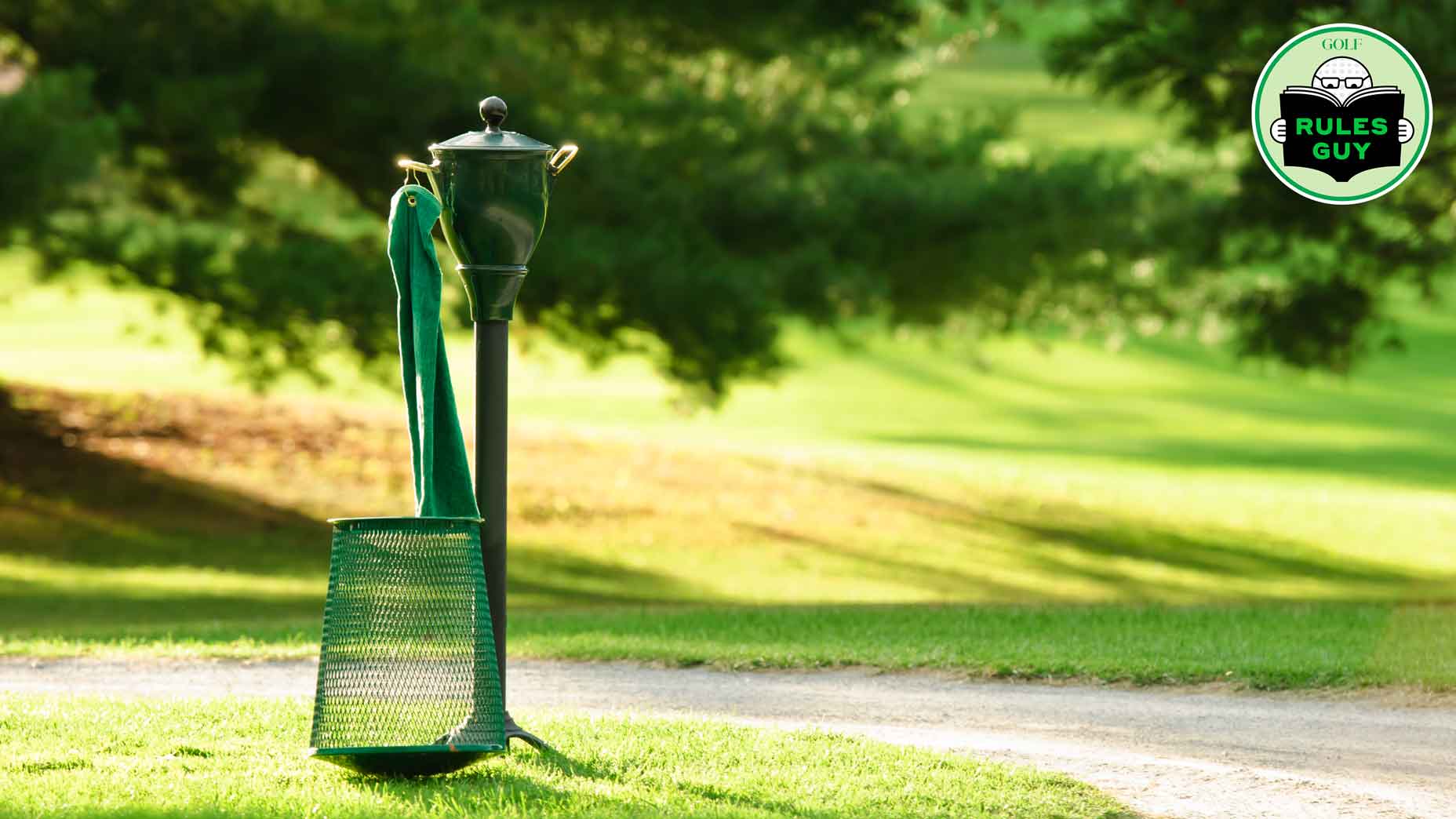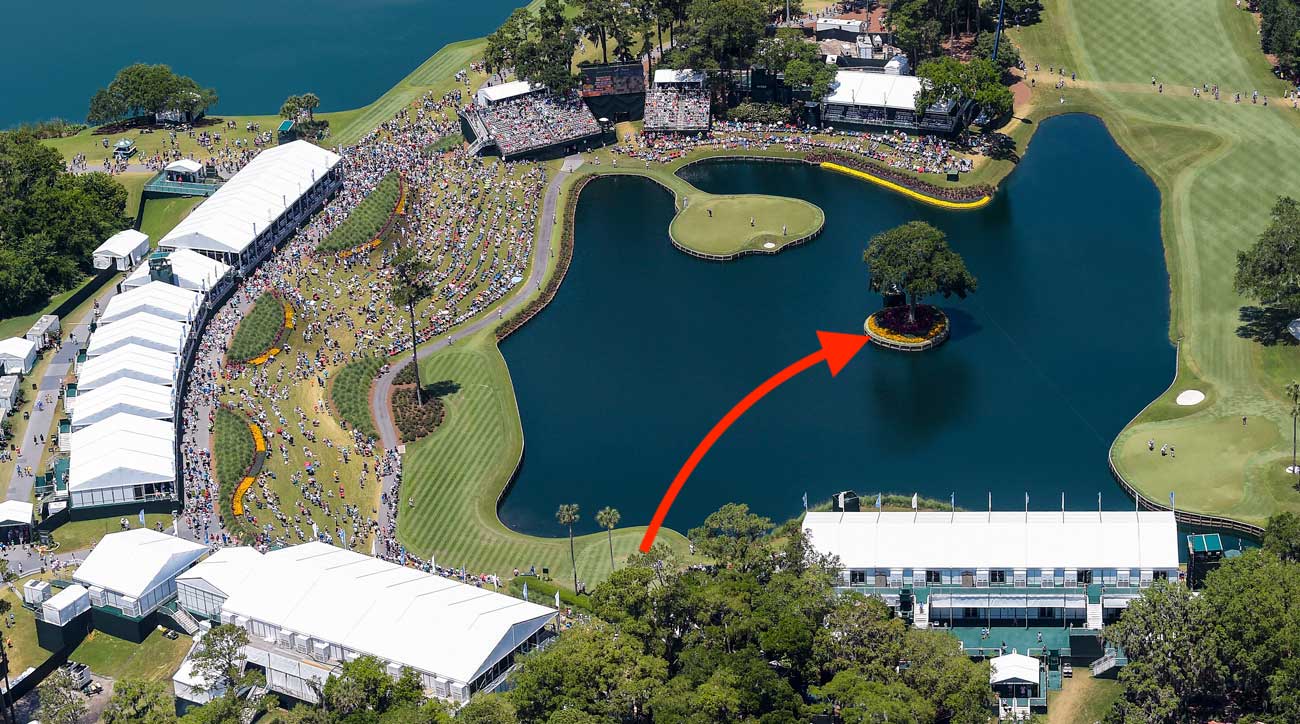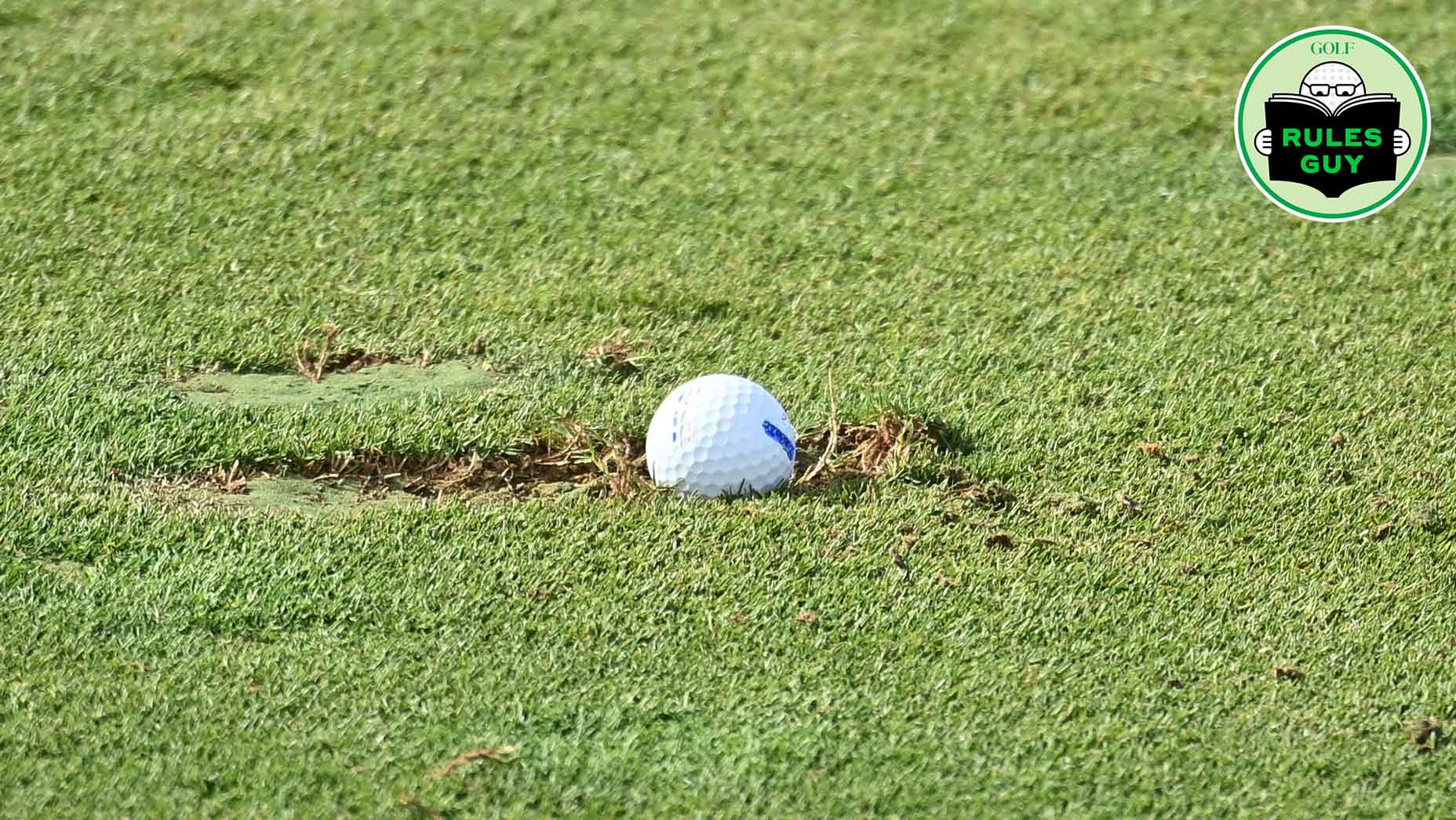 Rules Guy: My ball got tangled up in a wrapper. Can I remove it without penalty?
Rules Guy: My ball got tangled up in a wrapper. Can I remove it without penalty?
Pro gets penalty for NOT taking a mulligan thanks to bizarre rule loophole

Anybody who has ever played golf has seen and taken his or her fair share of mulligans, rules sticklers be damned. But on Sunday, Jesper Parnevik broke the rules when he didn’t take a mulligan — stumping rules officials in the process. That’s far more impressive.
Here’s how it went down. During the final round of the PGA Tour Champions’ SAS Championship at Prestonwood Golf Club in North Carolina, Parnevik was cleaning up a short bogey putt when the ball lipped out and struck him in the foot. Parnevik tapped in the ensuing putt for what he figured was a double bogey. Only, it wasn’t.
Perplexed? So were the rules officials on site. According to a Reuters report, the presiding officials were uncertain enough of the ruling that they had to call the USGA for clarification.
As it turned out, Parnevik had misplayed the ball — and likely cost himself two shots in the process. Rules official Brian Claar explained the situation to Reuters.
“When a ball on the putting green accidentally hits any person, animal or immovable obstruction, this stroke does not count and the ball must be replaced on its original spot,” he told Reuters.
In other words, because Parnevik accidentally struck his own foot, he was required to take a mulligan. When he tapped in his next putt, he was deemed to have played his mulligan from an incorrect spot. The original putt didn’t count — but the second one did, plus a two-shot penalty. That’s a triple-bogey 7. In the big scheme of things, the extra two shots would have only bumped Parnevik from T-68 to T-63. But the hypotheticals it introduces? Man, those are juicy.
Claar said when he called the USGA for an assist, “They said, ‘Did that really happen out there,'” adding that the governing body’s rules gurus had never heard of the rule being enforced in competition.
Now, we at GOLF Mag love a good rules kerfuffle and I know if you’ve made it this far in the article that you probably do, too. The weirdness of golf’s capital-R Rules are all good fun, provided neither you nor your well-placed investments are directly involved (and if you’re betting on Parnevik’s final round at the SAS Championship, well, good luck). But at the risk of being a buzzkill, this is a rule that really shouldn’t exist — at least not for this purpose. There’s no reason whatsoever that Parnevik missing a putt and failing to get his foot out of the way after it misses should give him another chance at it. That’s a reward that just doesn’t make sense.
On the surface, I sort of understand why this rule is in place. Here the text, as written:
When Ball Played from Putting Green Accidentally Hits Any Person, Animal or Movable Obstruction (Including Another Ball in Motion) on Putting Green: The stroke does not count and the original ball or another ball must be replaced on its original spot (which if not known must be estimated)
So, if Patrick Cantlay hits into your group while you’re putting for birdie and your ball strikes his (check the video below!) then you’re good to go. Mulligan! That makes sense.
Wait, WHAT?
— PGA TOUR (@PGATOUR) February 23, 2019
We nearly had an incoming par 4 hole-in-one.
Close call. 😳 pic.twitter.com/rsArW29x4l
ADVERTISEMENT
There are other situations that this protects against. If, say, a TV tower falls onto the green in front of you while you’re mid-putt? Mulligan! That makes sense.
And look, in the Parnevik situation I’m not sure whether or not he should be penalized — though a one-shot penalty seems appropriate, if he stopped his ball from moving further. But it makes no sense for him to get to try again. Nor would it make sense for a situation resembling one of golf’s most viral putts of all time, Mike Clayton’s horror film below, to result in a mulligan.
Anyway, I’m not sure this should be on the USGA’s short list of priorities given that it’s never happened before. But if you’re in a money match this weekend and you miss a short putt, it wouldn’t be a bad strategy to slip your foot accidentally (that part is key) in the way.
We’ll see if your opponents offer you a mulligan then.
ADVERTISEMENT







